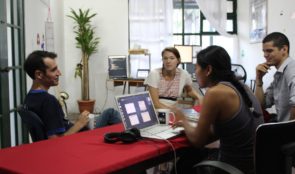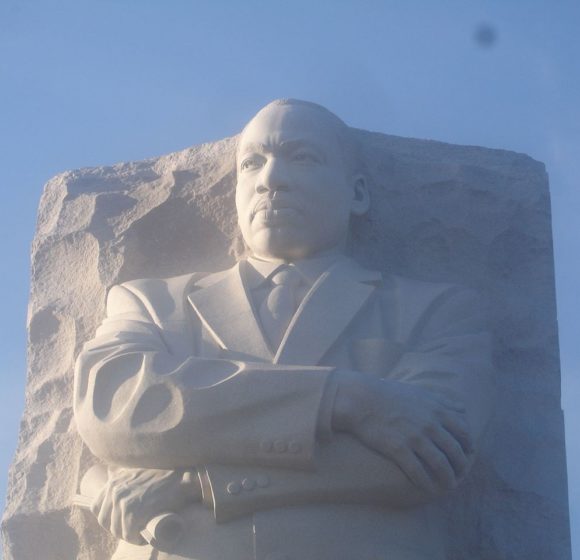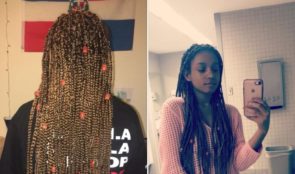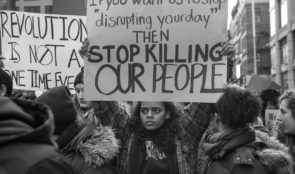Once again, a viral video displays young black men being racially profiled and arrested by the police; yet this time, the stage is not the streets—it’s Starbucks. In response, on May 29 the multi-million dollar coffee giant is closing all 8,000 US stores and requiring 175,000 employees to go through unconscious bias training.
But, rather than focusing on intensive training, Starbucks and other companies seeking to address racial bias within their workforce would be better served by focusing on relationships.
While unconscious bias training can raise awareness and is a good first step, it’s not enough to prevent a similar incident from happening again. Research shows that these trainings have little or varied impact. In fact, in 2007, a Harvard University study found that unconscious bias training was an ineffective strategy in the workplace, noting that “it is difficult to train away stereotypes.”
To meaningfully move the needle on reducing racial prejudice, we need more than awareness-raising training; we need real relationships with one another across lines of difference. Building real, authentic relationships with people who do not look and act like you will change the way that you see and think about others. Believe it or not, we have all been seeing difference, like race, since we were toddlers. To move forward, we must acknowledge it—not ignore it—and proactively work to reduce explicit and implicit biases that result from it.
To promote and create an anti-bias culture that lasts beyond one training session, companies should provide space during work hours for employees to engage in deep, personal dialogue. In 2016, Accenture launched a dialogue series for employees to engage in open conversations about diversity and noted that, as a result, employees started to see each other as human beings. Last year, I engaged an influential community leader who is also a mother in a “walk and talk” (a 10-minute conversation with a partner while walking around the office or outside).
In that brief conversation, I shared my fears as a new mom raising a black baby boy in 2017.
She acknowledged that she had never considered the impact of racial profiling from the perspective of the mother and gained a deeper level of empathy in a matter of minutes. A simple strategy, like “walk and talks,” can create a lasting impact in a very short amount of time. Empathy, compassion, and seeing another as a human being were precisely the competencies needed to prevent the Starbucks incident. Emotions have traditionally been undervalued in the workplace, particularly corporate America, but clearly emotions are just as valuable to the bottom line as technical skill.
In addition, companies should use their platform and reach to make impact well beyond their organization. Learning from organizations like Dallas Dinner Table, a non-profit in Dallas, Texas, that brings diverse people together over a dinner conversation to dispel racial myths and misconceptions while encouraging cross-cultural communication, Starbucks’ could be a model for others to follow by creating space for public discourse about race in coffee shops all over America.
Outside of the workplace, we can also each take our own individual steps to build relationships across lines of difference. In today’s fast-paced, smartphone-driven culture, we are losing fundamental social skills that we learn as children.
We need to take digital breaks and become more comfortable acknowledging and engaging the people around us.
I experienced this first-hand at a recent Chris Rock comedy show where audience members were required to physically lock up their phones during the performance. During the 10-minute wait for the headliner to come on stage, audience members joked about how they didn’t know what to do with themselves, and perhaps they should meet their neighbor since they didn’t have a phone. It was awkward and uncomfortable for us to turn to a neighbor and introduce ourselves, but this is exactly the type of interaction we need in order to broaden our perspective and meet people unlike ourselves.
Once in dialogue with one another, we must recognize that listening is just as important as talking, and do the deep work of learning from and respecting each other’s stories. This is where the magic happens. In 2016, AT&T Chairman, CEO, & President, Randall Stephenson, vulnerably told a powerful story about how after years of friendship, he, a white male, never knew of the grave racism his best friend, Chris, a black male, experienced in life until recently. Randall realized, “If two very close friends of different races don’t talk openly about this issue that’s tearing our communities apart, how do we expect to find common ground and solutions for what’s a really, really serious problem?” Having open and honest dialogue is hard, but it is where we will build trust, empathy, and true compassion for one another. This is where we will see in each other, ourselves; and in each other’s children, our own.
Twenty years from now, when my now preschool-age black son patiently awaits for a business meeting to begin at a local coffee shop, instead of calling the police, I pray that the store manager starts with, “hello, what brings you in today?”
-Rea Foster
Rea Foster is a Public Voices Fellow , a former attorney and COO at Teach for America, Dallas, Texas














